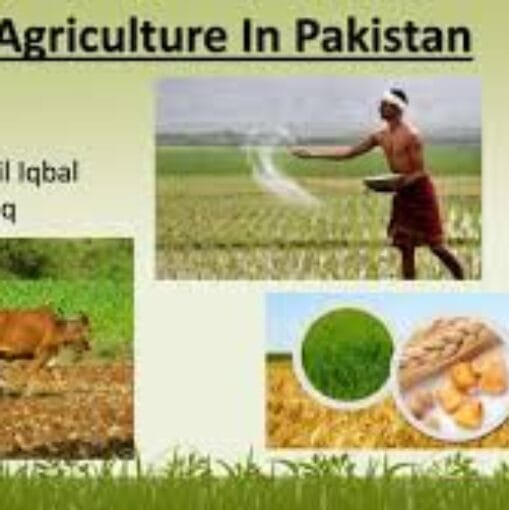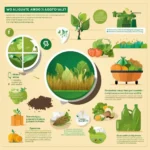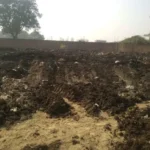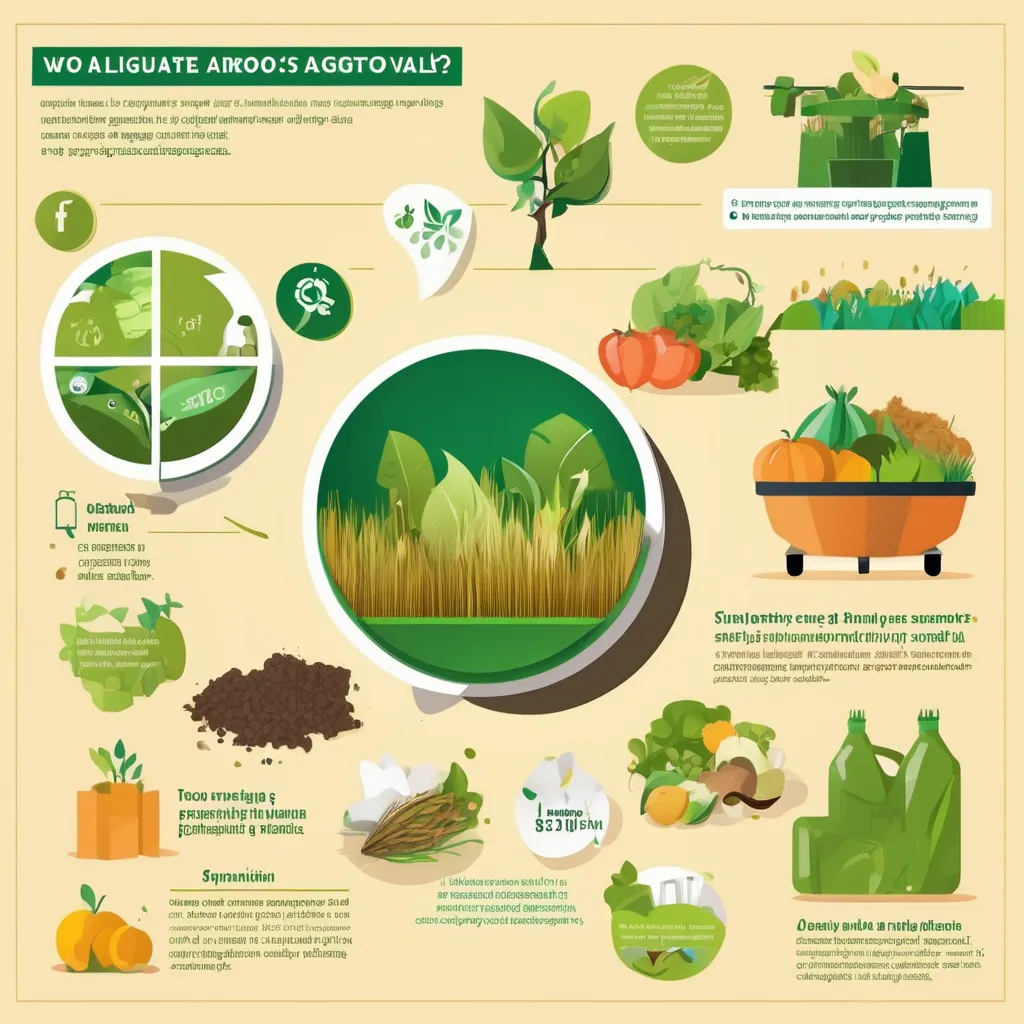When you think about Pakistan’s importance in agriculture economy, what comes to mind? Industries like textiles, manufacturing, or services may be the first things that pop into your head. But what if we told you that there’s another sector that plays a importance in Pakistan’s economic development? Yes, it’s agriculture, the backbone of Pakistan’s economy!
Agriculture in Pakistan goes far beyond just traditional farming practices. It encompasses a wide range of activities, from crop production to livestock farming and agribusiness. With its vast arable land, favorable climate, and abundant water resources, Pakistan possesses the potential to become a powerhouse in the agricultural sector.
So, how does agriculture in Pakistan contribute to the country’s growth? What are the key crops and products that drive the sector? And what challenges does it face in terms of sustainable development? In this article, we’ll delve into the basics, scope, and importance of agriculture in Pakistan, shedding light on its significance for the economy and the well-being of its citizens.

Key Takeaways:
- Agriculture is a vital sector of Pakistan’s economy, accounting for about 18.9% of the country’s GDP.
- The major crops in Pakistan include wheat, cotton, rice, sugarcane, and maize.
- Pakistan is a significant global producer of mangoes, ranking fourth in the world.
- Agriculture plays a crucial role in providing food security, generating income, and supporting rural livelihoods.
- The sector faces challenges such as outdated irrigation practices and the need for research and development.
Agriculture Sector in Pakistan: Key Statistics and Rankings
In 2015, Pakistan emerged as a major player in the global agriculture sector, showcasing impressive statistics and rankings. The country’s dedication to agricultural practices has led to importnce crop production, fueling agricultural development and creating numerous job opportunities in the sector.
| Crop | Production (Million Tons) | Ranking |
|---|---|---|
| Sugarcane | 67.1 | 5th |
| Wheat | 25.0 | 7th |
| Rice | 10.8 | 10th |
| Maize | 6.3 | 20th |
| Cotton | 4.8 | 5th |
Pakistan’s crop production extends beyond the aforementioned crops. The country also cultivates a diverse range of agricultural products, including potatoes, mangoes, onions, oranges, tomatoes, apples, watermelons, carrots, and dates. This rich agricultural portfolio allows Pakistan to thrive in the global market, exporting various products such as rice, cotton, fish, fruits, and vegetables.
The agriculture sector in Pakistan goes beyond crop production. It offers a wide range of job opportunities, encompassing farming, agricultural research, and the development of innovative agricultural technologies. This emphasis on modernizing agricultural practices enhances productivity and drives sustainable growth in the sector.
With its remarkable agricultural statistics, diverse crop production, and commitment to adopting advanced technologies, the agriculture sector in Pakistan paves the way for economic prosperity and a thriving workforce.
Agricultural Development in Pakistan: Progress and Challenges
The agricultural sector in Pakistan has witnessed significant growth and development over the years. Government initiatives aimed at promoting sustainable agriculture and agricultural growth have played a crucial role in driving the sector forward. Increased support prices for agricultural commodities and expanded availability of agricultural credit have provided the necessary financial resources for farmers to invest in their crops and equipment. These measures have contributed to the overall growth and productivity of the agricultural sector in Pakistan.
The introduction of modern farming techniques and advanced agricultural technologies has further enhanced agricultural productivity in Pakistan. Farmers are now able to optimize their land and resources, resulting in higher crop yields and improved agricultural practices. Sustainable agriculture practices, such as the use of organic fertilizers and integrated pest management, have also gained prominence, ensuring the long-term viability of agricultural activities in the country.
However, despite the progress made, the agricultural sector in Pakistan continues to face challenges. Outdated irrigation practices and inefficient water usage pose significant obstacles to agricultural productivity and sustainability. Improving water management systems and adopting modern irrigation techniques can help mitigate these challenges and ensure the efficient utilization of water resources.
“Sustainable agriculture is the key to the long-term growth and development of the agricultural sector in Pakistan. By embracing modern farming techniques and investing in agricultural research and development, we can address the challenges and meet the evolving needs of the industry.” – Dr. Ali Hassan, Agricultural Researcher
Furthermore, there is a need for continued investment in agricultural research and development to tackle emerging issues and promote innovation within the sector. Research institutions and agricultural universities should work in collaboration with farmers to develop solutions that address the specific challenges faced by the agriculture industry in Pakistan.
In conclusion, the agricultural sector in Pakistan has made significant strides in terms of development and growth. The implementation of sustainable practices and the adoption of modern farming techniques have contributed to increased agricultural productivity. However, challenges such as outdated irrigation practices and the need for further research and development remain. By staying committed to sustainable agriculture and promoting research and innovation, Pakistan can ensure the continued progress and prosperity of its agricultural sector.
Agricultural Development and Challenges in Pakistan: Overview
| Challenges | Impact |
|---|---|
| Outdated irrigation practices | |
| Inefficient water usage | |
| Need for further research and development |
Role of Agriculture in Pakistan’s Economy
Agriculture plays a crucial role in Pakistan’s economy, contributing about 21% to the country’s GDP.
The agriculture sector provides a strong foundation for economic development and is considered a prerequisite for self-sustained growth. It directly impacts food security, supports rural livelihoods, and generates income for millions of people.
Furthermore, agriculture serves as a catalyst for the development of other industries, such as agribusiness and food processing, creating additional employment opportunities and contributing to overall economic prosperity.
However, for the long-term viability of the agriculture sector and sustainable economic growth, it is crucial to adopt and promote sustainable agricultural practices.
Sustainable agriculture focuses on balancing environmental preservation, economic profitability, and social equity. By incorporating practices such as organic farming, crop rotation, water conservation, and natural pest control, sustainable agriculture ensures the optimal utilization of resources while minimizing negative environmental impacts. This approach not only protects the environment but also enhances agricultural productivity and resilience.
“Sustainable agriculture is not just about maximized productivity; it is about creating a balance between environmental health, economic prosperity, and social well-being.” – Mr. Ali Khan, Agricultural Economist
Adopting sustainable agricultural practices in Pakistan is essential to mitigate environmental challenges such as soil degradation, water scarcity, and climate change, which significantly affect crop production and overall agricultural sustainability.
To understand the impact of agriculture on Pakistan’s economy, let’s take a look at this table:
| Key Economic Indicators | Data |
|---|---|
| Gross Domestic Product (GDP) | 21% contribution from agriculture sector |
| Employment | About 42.3% of the labor force employed in agriculture |
| Food Security | Agriculture ensures food security by providing a stable food supply |
| Livelihoods | Agricultural activities support the livelihoods of rural communities |
| Industrial Development | Agriculture contributes to the development of agribusiness and food processing industries |
As evident from the table, agriculture’s contribution to Pakistan’s economy goes beyond GDP growth. It plays a pivotal role in ensuring food security, sustaining rural communities, and fueling industrial development.
The government, along with farmers, stakeholders, and educational institutions, must work together to promote sustainable agricultural practices, support innovation in farming techniques, and allocate resources for agricultural research and development.

Agricultural Education and Research in Pakistan
Agricultural education and research play a crucial role in the growth and development of the agriculture sector in Pakistan. Academic institutions such as agricultural universities and research centers provide comprehensive education and training to students who aspire to make a career in the agriculture industry. These institutions focus on equipping students with the necessary skills and knowledge in farming techniques, crop cultivation, and agricultural management.
In addition to providing education, these institutions actively engage in research activities to enhance agricultural practices, develop innovative farming technologies, and address the challenges faced by farmers in Pakistan. Through research, scientists and experts work towards improving crop productivity, developing sustainable farming methods, and finding solutions for pests, diseases, and other agricultural concerns.
Agricultural policies and regulations also play a significant role in ensuring the sustainable growth of the agriculture sector and safeguarding the welfare of agricultural communities. The government formulates and implements policies that support agricultural development, address market dynamics, and promote the adoption of modern agricultural techniques. These policies aim to create a favorable environment for farmers, encourage productivity, and foster innovation in the agricultural sector.

The image above showcases the importance of agricultural education and research in Pakistan. It symbolizes the collaborative efforts of students, researchers, and policymakers to contribute to the advancement of the agriculture industry. Through education, research, and effective policy implementation, Pakistan’s agriculture sector can thrive, ensuring food security, economic stability, and improved livelihoods for its population.
Agricultural Challenges and Sustainability in Pakistan
The agriculture sector in Pakistan faces numerous challenges that affect its sustainability and productivity. These challenges include:
- Water Scarcity: Pakistan experiences water scarcity due to factors like melting glaciers, erratic rainfall patterns, and inefficient water management practices. This scarcity hampers crop production and affects the livelihoods of farmers.
- Climate Change: Increasing temperatures, changing rainfall patterns, and extreme weather events pose significant challenges to agriculture in Pakistan. Farmers have to adapt their practices to cope with these changes and ensure food security.
- Soil Degradation: Overuse of agrochemicals, soil erosion, and improper land management practices lead to soil degradation, reducing its fertility and hampering crop growth. Sustainable soil management techniques are essential to maintain agricultural productivity.
- Pest Infestation: Pests and diseases pose a constant threat to crops, reducing yields and increasing production costs. Integrated Pest Management (IPM) practices and improved monitoring systems are crucial for effective pest control.
- Limited Access to Modern Farming Techniques: Small-scale farmers often lack access to modern agricultural techniques, such as precision farming, mechanization, and greenhouse technology. Limited knowledge and financial constraints hinder their adoption of these practices.
The government of Pakistan has implemented various agricultural policies and programs to address these challenges and promote sustainability in the sector:
- Agriculture Policies: The government has introduced policies that support sustainable agriculture practices, promote organic farming, encourage conservation, and provide incentives for the adoption of modern technologies.
- Agricultural Education: Agricultural education and training programs are being developed to enhance farmers’ knowledge and skills in modern farming techniques, crop management, and sustainable practices.
- Research and Development: Continuous research and development efforts are underway to tackle the challenges faced by the agriculture sector. Research institutions focus on developing new technologies, crop varieties, and innovative solutions to address the issues of water scarcity, climate change, and pest control.
Efforts in agricultural education and research play a vital role in developing sustainable solutions and ensuring the long-term sustainability and growth of the agriculture sector in Pakistan.
Conclusion
Agriculture is a crucial sector in Pakistan, playing a vital role in the country’s economy, employment generation, and food security. Despite facing various challenges, the agriculture sector has the potential to thrive by implementing effective policies, investing in research and development, and adopting sustainable agricultural practices.
The benefits of agriculture in Pakistan are manifold. It contributes significantly to the country’s economy, accounting for a substantial portion of the GDP. Agriculture also provides employment opportunities, particularly in rural areas, supporting the livelihoods of millions of people. Additionally, the sector ensures food security by producing a wide range of crops and agricultural products.
To ensure the sustainability and growth of agriculture in Pakistan, it is important to address the challenges faced by the sector. This includes the efficient allocation and utilization of agriculture resources such as water, land, and fertilizers. Moreover, the adoption of modern farming techniques, crop diversification, and the promotion of organic farming can enhance productivity while minimizing the negative environmental impact.
The role of agriculture in Pakistan cannot be underestimated. It acts as a catalyst for the development of other industries, such as agribusiness and food processing, contributing to overall economic growth. Moreover, agricultural education and research institutions play a pivotal role in imparting knowledge, developing skills, and formulating agricultural policies that support sustainable practices and address the evolving needs of the industry.
In conclusion, agriculture in Pakistan holds immense potential and presents opportunities for economic prosperity, employment generation, and food security. By harnessing these opportunities, addressing challenges, and promoting sustainable practices, Pakistan can ensure the development, sustainability, and prosperity of its agriculture sector for the benefit of the entire nation.
FAQ
What is agriculture?
Agriculture refers to the practice of cultivating crops, raising livestock, and producing food, fiber, and other agricultural products. It involves various activities, including farming, crop cultivation, animal husbandry, and agricultural research.
What is the scope of agriculture?
The scope of agriculture is vast and encompasses various aspects, including crop production, livestock farming, agricultural technologies, agribusiness, agricultural education, and research. It plays a critical role in providing food security, generating income, and supporting the livelihoods of rural communities.
Why is agriculture important in Pakistan?
Agriculture is of paramount importance in Pakistan as it contributes significantly to the country’s economy, accounting for about 18.9% of its GDP and employing about 42.3% of the labor force. It plays a vital role in providing food security, generating income, and supporting the livelihoods of rural communities.
What are the major crops in Pakistan?
The major crops in Pakistan include wheat, cotton, rice, sugarcane, and maize. The country is also a significant producer of mangoes, ranking fourth globally. Other agricultural products include potato, onion, tomato, apple, watermelon, carrot, and date.
How does agriculture contribute to Pakistan’s economy?
Agriculture contributes about 21% to Pakistan’s GDP and serves as a strong foundation for economic development. It supports other industries, such as agribusiness and food processing, generating employment opportunities and promoting economic growth.
What is the role of agriculture in Pakistan’s economic growth?
Agriculture plays a crucial role in Pakistan’s economic growth by contributing to GDP, providing employment opportunities, and supporting the development of other industries. It also helps in addressing food security challenges and reducing poverty in rural areas.
What is the significance of agricultural education and research in Pakistan?
Agricultural education and research are essential components of the agriculture sector in Pakistan. Agricultural universities and research institutions provide education, training, and conduct research to improve farming techniques, develop new technologies, and address challenges faced by farmers.
What are the challenges faced by the agriculture sector in Pakistan?
The agriculture sector in Pakistan faces various challenges, including water scarcity, climate change, soil degradation, pest infestation, and limited access to modern farming techniques. These challenges impact crop production, food security, and the overall sustainability of the sector.
How can the agriculture sector in Pakistan overcome these challenges?
To address these challenges, the government has implemented various agricultural policies and programs that promote sustainable agriculture practices, provide support to farmers, and encourage the adoption of modern agricultural techniques. Additionally, investments in research and development are crucial to developing solutions and ensuring the long-term sustainability of the agriculture sector in Pakistan.
What are the benefits of agriculture in Pakistan?
Agriculture in Pakistan provides various benefits, such as ensuring food security, generating income, supporting rural livelihoods, promoting economic growth, and contributing to the country’s export market. It also plays a significant role in the development of other industries, such as agribusiness and food processing.
How can agriculture contribute to sustainability in Pakistan?
Sustainable agriculture practices, such as efficient water usage, soil conservation, and the use of organic fertilizers, can contribute to the long-term sustainability of the agriculture sector in Pakistan. These practices help conserve natural resources, protect the environment, and ensure the viability of farming for future generations.





Thanks for sharing. I read many of your blog posts, cool, your blog is very good.